This article is geared towards new agents, but there’s tons of useful nuggets of information for agents at all stages of their career.
Taking a real estate pre-licensing course can help you get a head start on becoming a real estate agent and ensure you pass the exam. However, once you’re licensed you are up against industry giants from day one.
After passing the real estate exam, you’ll know the core legal, technical and financial aspects of the business since it’s fresh in your mind… but what about marketing? You’re essentially a solo entrepreneur now, and while your brokerage may provide you with some basic support, you’re likely going to have to throw on a marketing hat as well.
To help you allocate precious resources, we’ve put together this marketing checklist. Think of it as your marketing blueprint for the first year as a real estate agent.
This list is basically the result of having so many new agents ask us where to start when it comes to marketing… with special emphasis on what’s important and what can wait.
To keep things simple, we broke up the list into 3 parts and each has a “must have 🚨” and a “nice to have 👌” section. The three parts are:
- Before you’re licensed
- Shortly after closing your first deal
- Before your first year anniversary
Buckle in because we’re going to cover a TON of ground, and it’s going to seem overwhelming especially if you’re just starting. Also note that we’re just scratching the surface here and each one of these items could have its own extensive guide.
Scroll to the bottom of this post for a printable version of the checklist.
Before You’re Licensed
If you happen to have discovered this guide before getting licensed, then you’re in luck! You can get a head start and hit the ground running when you’re actively licensed.
MUST HAVE 🚨
Nothing!
Your primary objective is to pass that exam.
NICE TO HAVE 👌
Professional headshots
Headshots are typically the first thing new agents knock off their list when it comes to marketing.

Ditch the old college photo and find a professional in your area. Try to incorporate your city/neighbourhood in the photos for an instant boost of recognition.
A short, written bio
Who doesn’t love talking about themselves? Keep your bio between 300 and 500 words. Shorter bios are meant to capture the reader’s attention and encourage them to connect with you.
Bonus points: Include a few “lifestyle” photos alongside your bio. They really help break down digital barriers and build a real sense of connection. Photos of you interacting with your clients and community tell a great visual story.

Your own logo and personal branding
You may choose to piggyback off your brokerage brand, especially in the beginning. There’s nothing wrong with that and it can help you get your career off the ground. However, many agents eventually choose to focus on their personal brand.
Hiring a professional branding agency can really help differentiate yourself and the process of branding will force you to better-define what type of agent you are and who your ideal clients are. These are benefits that will permeate through all aspects of your business and marketing.
A domain name that you own
At the very least you should try to own “yourname.com” (and .ca in Canada).
Use whatever domain registrar you like (for example godaddy.ca or 10dollar.ca). Make sure that you own it and have access to managing it directly. You never know where your business will take you so you’ll want to maintain control of your domain at all times.
An email address at your domain name
If you’re using anything that ends in “@gmail.com, @hotmail.com, @shaw.ca, etc.” for business then you need to stop immediately. This may have been acceptable at the dawn of the internet, but in today’s day and age it sends the wrong message. It can make you seem disconnected with modern technology and gives the impression that you’re not a dedicated professional.
The great news is that it’s actually quite simple to get an email address at your domain name, and services like Google Workspace make it easy.
If you’re a RealtyNinja customer looking for help with this just reach out and we’ll point you in the right direction.
Social media pages for your business
We’re not saying that you need to have every social media profile fully set up, designed and operating smoothly this early in your career, but we strongly recommend that you secure your username on the main social media channels, at least so nobody else snags them.
For example, you can set up a Facebook business page URL and just input your basic contact details for now.
The essentials: Facebook, Instagram, LinkedIn.
Bonus points: YouTube, Twitter.
The planning stages or beginnings of a website
By no means do you have to have a live website before you’re licensed, but it’s worth considering mainly because of the way search engines work.
Search engines can take their sweet time to recognize a new website. This is especially true if the domain name has no prior history (or a bad history, which is even worse).
In an ideal world you should try to have a basic “coming soon” page or something basic live and working at your domain name as soon as possible. It does not need to be perfectly designed and it certainly won’t have any MLS/listing content on it (that would be against real estate board rules) but it should have your name and contact information.
This will help Google associate your domain name with your name and contact details. It will also unlock your ability to get an email address at your domain name and other useful things. Might as well get a head start, right?
Note: If you’re considering using RealtyNinja as your real estate website provider then we can set this up for you for no additional charge. Just get in touch and we’ll help you out.
Shortly after closing your first deal
Some agents start with a listing lined up and ready to go, even before they’re licensed. If that’s not you, then think of this next section as items you should try to get done in your first 3 months as a real estate agent.
Reminder: Think of this as a list of all major options you should at least consider, but even if you do half of these you’ll be ahead of most agents.
MUST HAVE 🚨
Aim to complete everything in the “nice to have” list in the previous section. That will act as your marketing foundation.
Complete profile on realtor.ca
Every agent in Canada will be listed on realtor.ca but many are missing their headshot, link to their website, brokerage logo or other important details. This is a low-hanging fruit that you can knock off your list in just a few minutes.
Complete profile on your brokerage website
Your brokerage will likely have their own website (or section on a franchise website), and there’s usually a page that lists all the agents. Make sure your photo and details are complete and up-to-date there as well.

The link to your website is especially important because it signals to Google that the two sites are related. If your website also links to your brokerage website in some way, then that connection signal grows even stronger. This type of interlinking will help build your website’s reputation in Google.
Live website with the essentials
By this stage you need to have your own website live and working at your domain name, and at the very least it should have the following elements:
- Logo (or name)
- Brokerage logo
- Contact info
- Headshot
- Bio
- Active listings
- MLS search
- Information for Buyers
- Information for Sellers
At RealtyNinja we always say that your website should evolve with your business. It’s not like you’re printing 10,000 copies of a book that has to be perfect from the get go. Start with the foundational pages and content mentioned above then build it out from there.
The design of your website will likely change over time as well. The brand, colours, fonts and other elements you chose at the beginning of your career will most definitely evolve.. So don’t sweat it too much.

We recommend starting with either a base real estate website template or going with a semi-customized design service. That will keep your initial costs low and allow you to look great without trying to reinvent the wheel.
A Google/Facebook review
As soon as you sell your first listing (or help your clients buy) you need to ask them for a review on Google and Facebook. Not only is it good for business, it’s great for SEO, and it will help you make a habit out of asking for testimonials.
Business card
At the very least you need a business card. Yep, an old school business card. You can get fancy with the design and material, but don’t underestimate the power of this marketing staple.
Professional photographer and floor plan provider
No matter how impressive your iPhone camera is, don’t ever use it for listing photos. Hire a professional photographer and have a backup (or two) in case they’re booked solid. Consider which photography company you’d use if you took a listing far away from your core city as well.
A great floor plan can also impress your clients and help you make that sale. Don’t skimp on this either.
Bonus points: Find one that can make 3D floor plans via Matterport.
NICE TO HAVE 👌
More print marketing materials
Beyond the humble business card you should start thinking about your buyer and seller presentations, CMA report template and other print marketing materials. If you’re just starting out then feel free to piggyback off your brokerage brand or use their templates.
Mailouts
Early-on in your career you may be wary of targeting too small of an area. This is where broad mailouts come in hand, because you can blanket entire postal codes and regions to see what sticks.
Bus and other outdoor ads
If you have room in your budget and want a low-tech way of getting your name out there, then look into getting transit ads in the neighbourhoods you want to focus on. The bus stop ads are nice and big and are usually backlit. They’re a simple way to say “I’m a real estate agent and I serve this area”.
Don’t expect leads or direct business from these things, but they help with basic brand awareness.
Online ads to your website’s homepage
Google and Facebook (and their related companies) still dominate the online ad space. Set aside a monthly budget for ads on Google and Facebook.
If your website is brand new then we recommend a 3-6 month ad campaign right away. That will give your website the initial lift it needs, while you wait for your content marketing (blogging) and SEO strategies to gain some traction.
Limited budget? Start small. Even $100/month will get you familiar with the ad platforms and bring in some fresh eyeballs.
No need to get fancy with landing pages and super-targeted campaigns just yet (unless you really want to). Start with a small target audience (for example adults in your city) and direct the traffic to your homepage initially.
Think of it as the digital bus ad equivalent.. not really meant for instant leads, but it will get your name out there and get your toes wet in online advertising.
Old school door knocking and cold calling strategy
Ahhh door knocking and cold calling. We’re not big fans of it, but some agents swear by it so we listed it here. Worth a shot at least!
Pandemic restrictions and common sense guidelines apply.
Host open houses for other agents
Got plans this weekend? Cool, cancel them. You’re going to call up the busiest agent in your office and offer to host their open house instead.
Hosting open houses for other agents is not only a great way to network with top producing agents, but it expands your own connections. You’ll be able to meet all kinds of potential buyers that may not be interested in the home you’re showcasing, but will make great prospects for you.
Make sure to talk to the agent you’re hosting for and discuss what’s okay and what’s not beforehand. Relationships are everything in real estate and you don’t want a bad rep.
Before your first year anniversary
If you haven’t noticed, we took the “shoot for the stars and you’ll land on the moon” approach to this checklist and packed A LOT in the sections above. Don’t sweat it if you haven’t knocked them all off your list in the first 3 months. However, you should try and get as many of those items done in your first year as an agent, and many of the “must haves” listed below.
If you really want to stand out, then also complete the “nice to haves” in the next section.
MUST HAVE 🚨
Defined target markets
By this stage you should have a fairly clear understanding of how you do business, and the people you prefer to work with.
Think of breaking your ideal clients up into groups based on demographics, geographics, property types, income, lifestyle, stage of life, etc. These “ideal client personas” will help you focus your marketing energy where it matters most. It will also help you create content and cater to your audience’s unique needs.
Testimonials and online reviews from every client you’ve worked with
Online reviews are more important than you may think. Aside from your website, it’s often the first place people look when researching you.
Kindly ask your clients to review you on Facebook as well as Google, then copy those over to your website.
Bonus: RankMyAgent.com reviews
A website with more than the essentials
In the previous section we talked about basic pages and elements your website should have. Now that you’re further along in your career you need to go beyond the basics and make sure your website also has:
- Testimonials
- Market updates
- Targeted MLS searches
- Your sold listings (buyer and seller side)
- Sold listing MLS search
- Neighbourhood profiles
- Open house search
- Enhanced listings (beyond MLS restrictions for your own properties)
- Other companies you work with (referral network)
Basic social media strategy
In the beginning it’s normal for agents to freestyle their social media channels. Randomly posting about open houses, coffee with clients or whatever else comes up. That’s fine at first, but just know that each platform serves its own purpose, delivers content via its own format and speaks to a certain audience. Leveraging social media with a strategy in place will consistently grow your business.
NICE TO HAVE 👌
Your own personal real estate brand and marketing materials
Some agents stick to their brokerage brand for years and that totally works for them. Others don’t want to be locked-in, and appreciate the flexibility of self-branding. Whatever you do, just consider the benefits and tradeoffs before going all-in.
At the end of the day your repeat clients are likely choosing to work with you in particular, and would continue to do so even if you switched brokerages. If that rings true to you then perhaps investing in your personal brand is the way to go.
We’ve seen some pretty incredible personal brands throughout the years of working with agents. These are just some of the memorable ones that stand out to us:
Targeted mail-outs
Now that you’ve had some time (and data), it’s time to narrow down your print marketing to specific targets. Think about mailing out to certain condo buildings or specific neighbourhoods (or subsets of them) with a message that resonates with them.
For example: “I just sold a unit in your building for more than asking! Let me do the same for you. Contact me today for a free market evaluation of your property”.
A customized website
Hopefully by now you’ve had a few sales and are able to re-invest some of that into growing your business. A great place to start is with a customized web design that doesn’t look like everyone else’s. You don’t need to re-do everything from scratch, but going beyond a fresh coat of paint will really help you stand out in the long run.
Aside from a unique design, your website should have:
- A regularly updated blog
- Buildings you target
- Embedded social media feed
- Live chat
CRM
A CRM (customer relationship management software) that’s tied into your website/contacts is essential once you start to get busy. Manually keeping track of a handful of clients is fine in the beginning, but you’re seriously doing yourself a disservice if you keep that up further in your career.
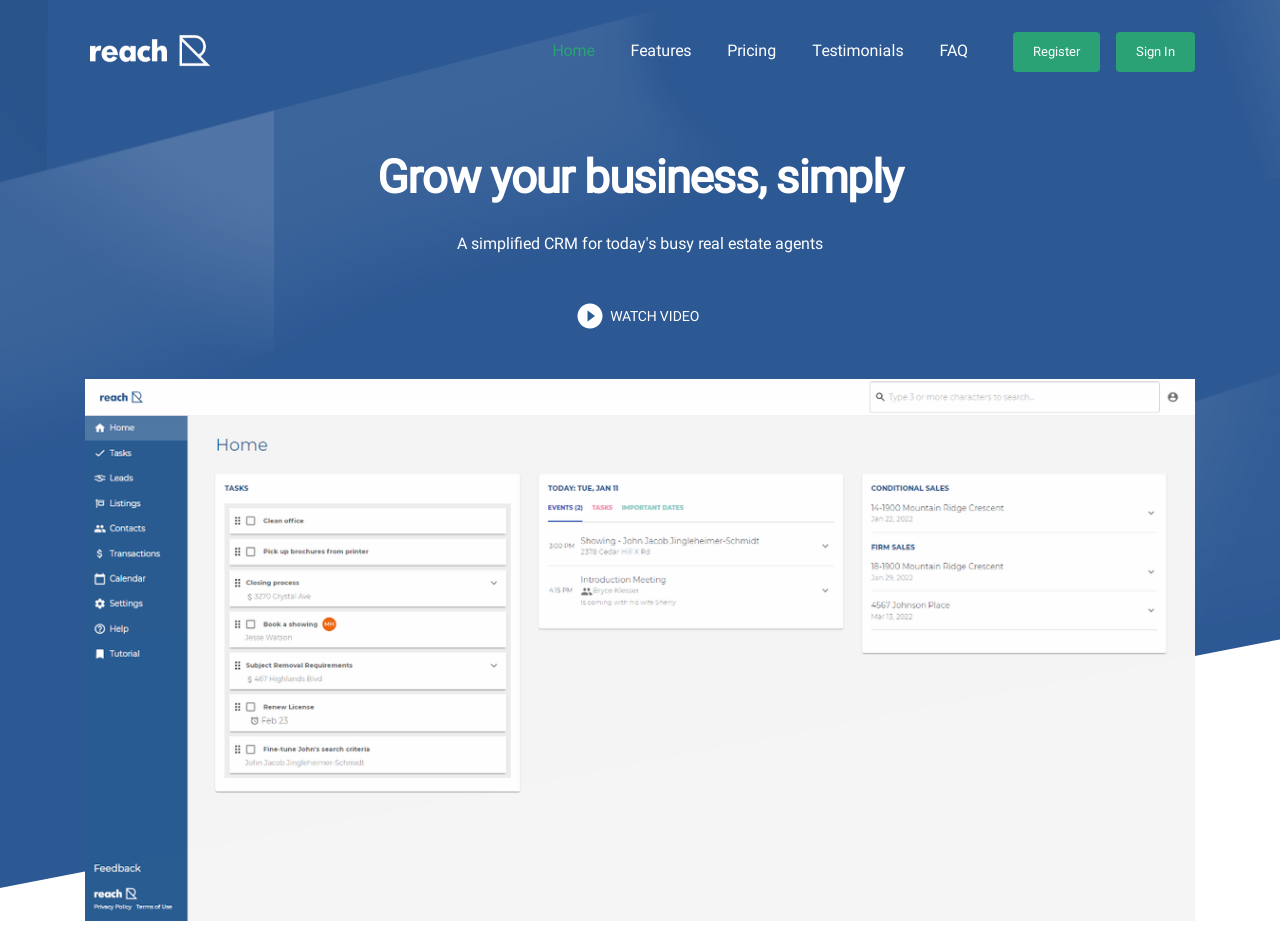
Note: Your brokerage may provide you with a CRM and other marketing tools, often for free. Note that these won’t necessarily be the best tools for the job.. and using them can tie you into the brokerage’s ecosystem and make it hard to pivot in the future (should you need to). On the flipside, having everything in one place may be beneficial to you, especially if the tools are all top-notch.
Did you know that RealtyNinja integrates with most CRMs? Check it out.
Email marketing
By this stage in your business you should have an active newsletter with periodic updates about the market, your listings/open houses and other relevant information.
Tools like Mailchimp make it easy to start email marketing.
Video marketing strategy
“YouTube may be more than 15 years old, but the platform has only gotten better, faster and stronger with the passage of time. In total, the site gets 14.3 billion visits per month: that’s more than Facebook, Wikipedia, Amazon and Instagram combined.”
– Hootsuite
Fun fact: YouTube is the world’s second biggest search engine, and it’s owned by the first biggest (Google). Video content is getting easier and easier to produce, so pick up your phone and start recording. You can post those videos on your website/blog, share them on social media and more.
Online ad campaigns and landing pages
Now that you’ve got a foundational understanding of how online ads work, it’s time to get targeted. The goal of targeted ads is not to say “Hey, look at me I’m a realtor now”. They’re meant for a specific audience that are looking for a particular thing.

For example, you could run a Facebook ad for “What’s your North Vancouver condo worth?” that targets adults in North Vancouver, and drive that traffic to a specific landing page on your website (not your homepage) that has that same exact content on it.
You could have separate ad campaigns and landing pages for:
- Each one of your listings
- Buyer lead-capture landing pages (ie: niche MLS searches for target areas)
- Seller lead-capture landing pages (ie: What’s your home worth)
- Other lead magnets (free downloads, market updates, etc.)
Marketing calendar
By pre-planning your blog posts and social media activity on a marketing calendar, you’ll know exactly what to work on, for how long, and when to post.
Consider using something like the Content Planner from Canva to help you get organized.
SEO strategy
SEO (search engine optimization) is a big topic, and it’s part art and part science.
Modern website providers (like RealtyNinja) take care of many of the underlying technological aspects of SEO, but a lot of it comes down to the unique content you add to your site, as well as the linking activity you do elsewhere on the internet.
Check out our “Ultimate SEO Guide for REALTORS®” for a deep dive.
Follow up strategy
Hopefully after a few years in the business your career will really start to snowball. A large part of that momentum comes from following up with old clients and asking them to re-use you as their agent in the future.
Ask seasoned agents in your office for advice on how they follow up with past clients. Modern CRM’s will help you automate the process, and many come with pre-built templates you can use throughout your business.
Neighbourhood videos
Content-creation generally falls into two categories: evergreen and time-sensitive.
Time-sensitive content, as you may have guessed, is relevant for a short period of time then it fades out or disappears entirely. For example content around market updates, new developments, tax law changes, open houses or even Instagram Stories.
Evergreen content is the exact opposite. It’s cornerstone content that continues to deliver value to those that consume it. A great example of that is creating profile videos of the neighbourhoods that you serve.

When creating this type of content try to highlight things that won’t change much over time, such as the general vibe and types of people in the area. Avoid details like particular businesses or building developments because they will change.
Post this content to multiple social media channels and YouTube. Link the description of the video back to the page on your website that has the video embedded on it as well.
Hosting in-person or virtual events
Agents often think of themselves as local celebrities, or mini-mayors. That mindset is really useful if you’re looking to generate business from people you don’t know (yet) in your community.
Even after years of zooming through a pandemic, the in-person experience will never be replaced. There’s a certain magic that happens between people when they meet face-to-face. Invest in the original face-time (see what I did there) and see your business grow right before your eyes.
Looking to go beyond the basics?
We put together a huge marketing bundle for real estate agents that takes the guesswork out of real estate marketing.
Need a professional?
Check out our Marketplace. We’ve partnered with a bunch of great companies that provide products and services to Canadian real estate agents, including branding, photography, advertising and more. The best part? They’re providing RealtyNinja customers with a sweet deal!
Download The Printable Checklist
We hope you enjoyed this online marketing checklist for your first year as a real estate agent! Bookmark this page or better yet, download the printable PFD of the checklist by entering your email address below.
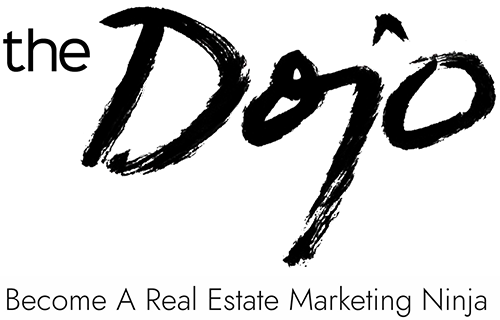
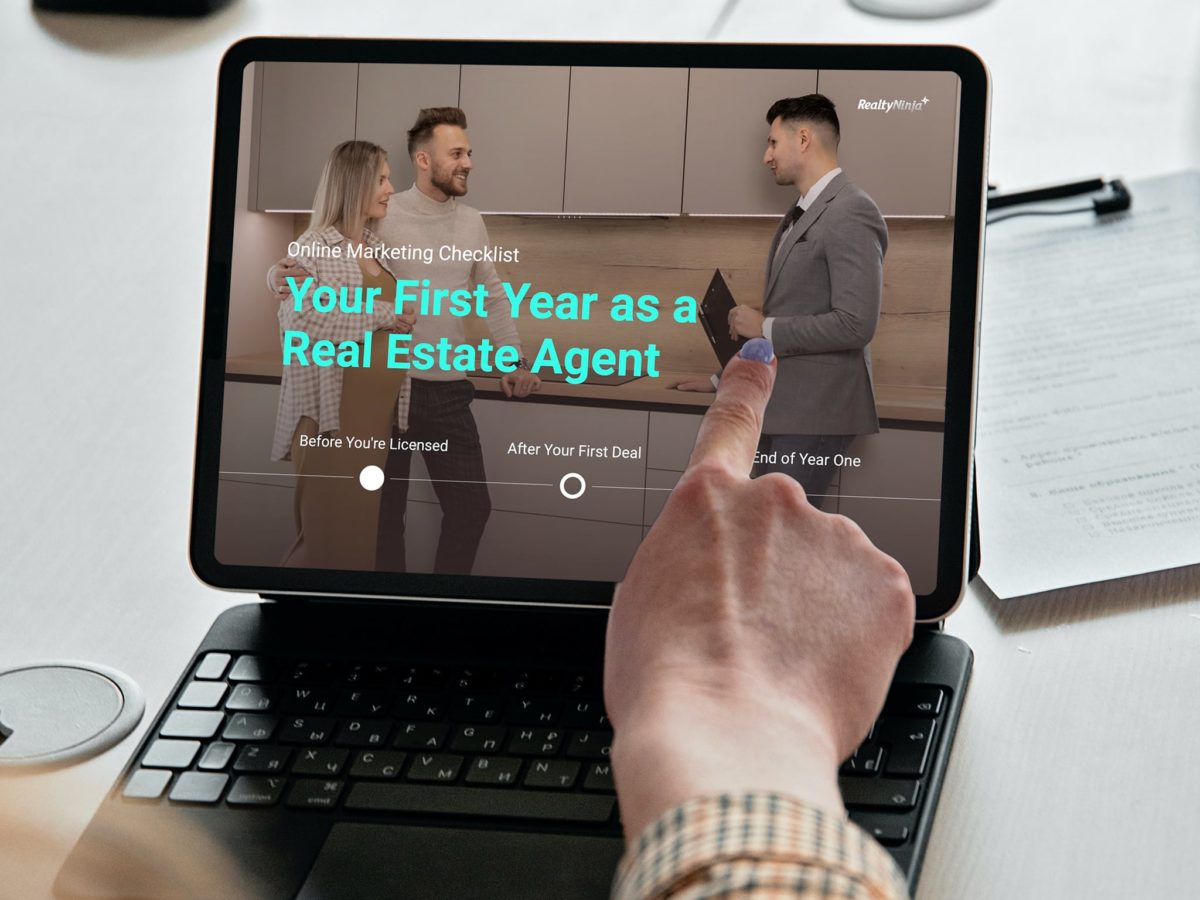
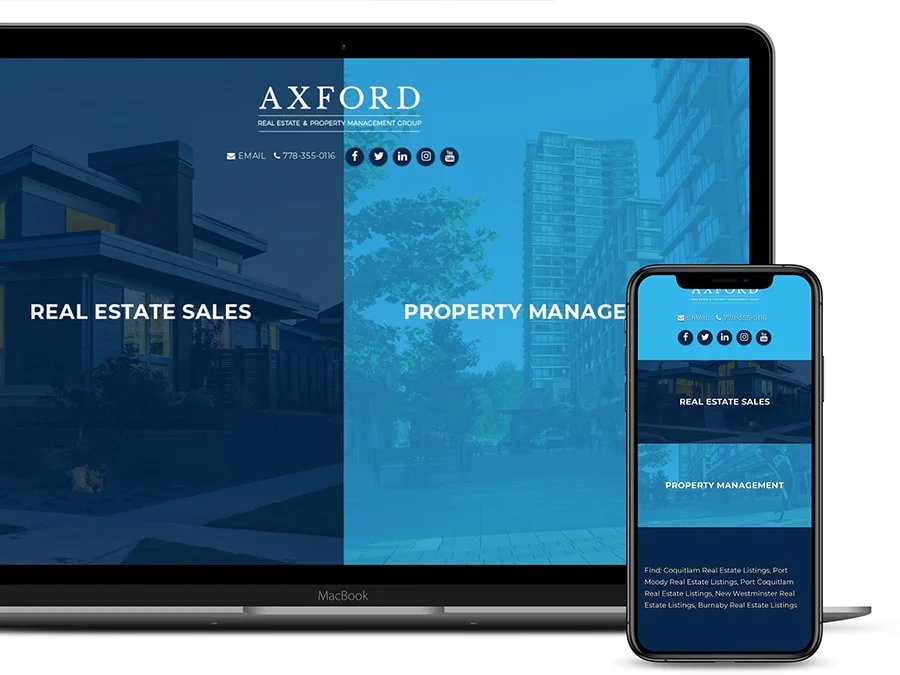



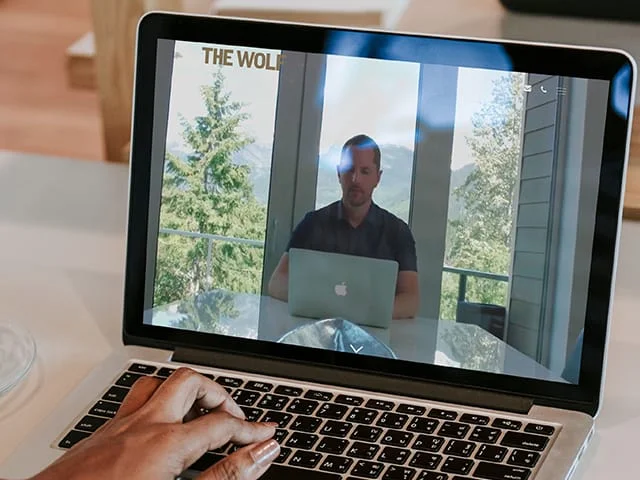
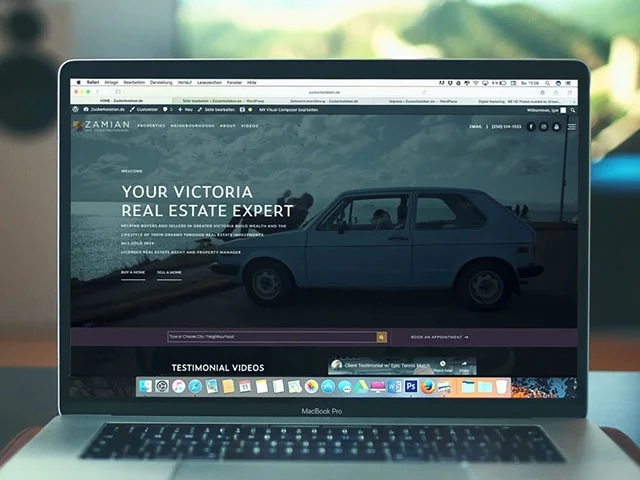



Austin
March 30, 2022 at 11:47 pm
Hey there, I didn’t see a place to enter my email address for the printable version of this checklist – did I miss it? Thanks – Austin
Ramin Sabour
March 31, 2022 at 1:38 pm
Hey Austin, just sent you a quick email with details. Let us know if it doesn’t work out and we can try another way, thanks!